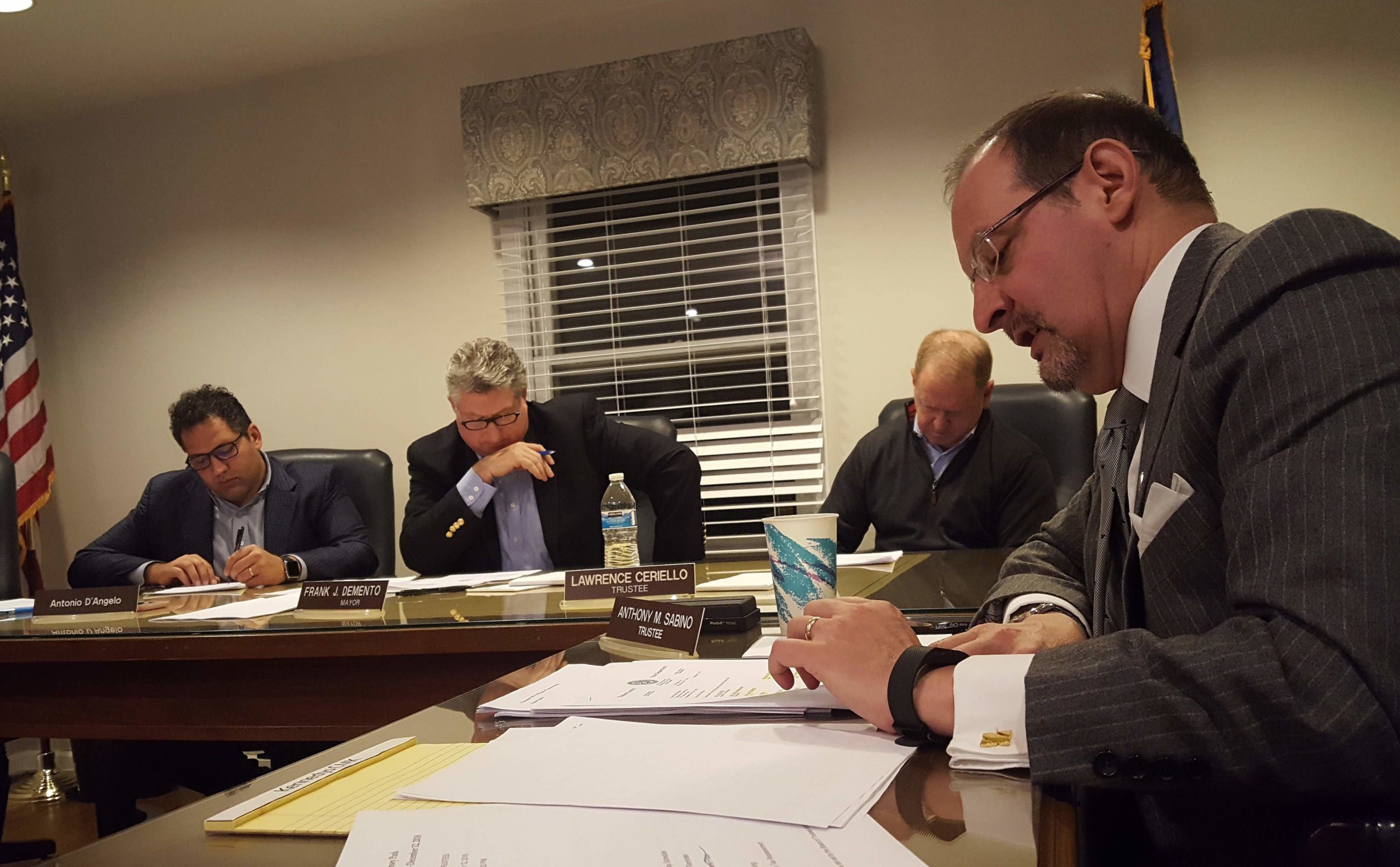The Munsey Park Board of Trustees postponed a vote on a law banning the sale of marijuana in the village after a resident raised concern about the legislation’s vague language at Wednesday night’s public hearing.
The board plans to reintroduce an updated version of the amendment at its January meeting and then vote on it in February.
Two residents attended the meeting to comment on the amendment, the first who did not take a position but suggested clarifying phrases such as “marijuana-related products” and a second who read a prepared speech that painted marijuana prohibition as a failed policy.
The drafted amendment lists “marijuana-related products” among a series of “prohibited use” objects and actions.
Resident John Boyle said such undefined language could be interpreted quite broadly.
“Most legal marijuana in the United States now is used and consumed by cooking it, by including it in some baked goods and baking it into some other product,” Boyle said. “A marijuana-related product could include a cupcake, a cookie sheet.”
Another part of the amendment bans “paraphernalia that facilitates the use or consumption of marijuana and/or marijuana-related products.”
Tobacco shops aren’t banned in the village, and they sell products like rolling paper and vapes, which could be considered such paraphernalia, Boyle said.
Boyle insisted that he was not asserting a position for or against the law but rather that the board should more carefully consider how it could play out if passed in its current state.
“You made a valid point about, well, some people cook marijuana,” said Trustee Anthony Sabino. “I’m obviously very naïve. I’d never heard of that, and you said people use a cupcake pan. Well, cupcake pans are used to bake run-of-the-mill cupcakes. If we insert certain words here to narrow paraphernalia to something exclusive primarily for facilitating marijuana use, do you that would address the concerns that you’ve raised tonight?”
Trustee Lawrence Ceriello said he wants to work with Boyle to make clarifying changes.
“I think it’s better to get it done right than to get it done fast,” Ceriello said.
The other hearing attendee was Locust Valley’s Jay Eric.
He was nearly dismissed when the board decided to postpone its vote on the law, but he requested to speak given that his prepared remarks were “only three minutes.”
Eric read a speech, telling the board that marijuana prohibition and the war on drugs “has been a failure” and was originated to embed racism in the criminal justice system.
“Don’t send police after us marijuana users,” Eric said. “We’re your friends, we’re your neighbors, we’re your coworkers. Hardworking mothers and daughters. Let’s let go of the propaganda and the dubious clichés.”
Those arguing against marijuana legality and dispensaries such as this board of trustees frequently say that regulated marijuana is harmful to youth despite the fact that they will not be able to purchase it under a regulated adult-use program, Eric said.
“This law is not about recreational marijuana for children,” Eric said. “No one anywhere is advocating for that. It is always and always will be against the law for children to use marijuana. Your children aren’t in any more danger by opening a dispensary than by opening a liquor store.”
In response to Eric’s speech, Ceriello plucked out phrases from the state’s assessment of the pros and cons of regulated marijuana, a report that concluded that the benefits outweigh drawbacks.
The report says that states with regulated marijuana have experienced little or no increase in marijuana use among youth, but Ceriello harked on health impacts for youth and individuals with mental disorders.
“‘Regular marijuana use in youth is associated with lower academic achievement,’” he read. “Next, ‘adolescents who use marijuana regularly have increased risk of developing psychosis. Additionally, for individuals who are susceptible to psychosis, regular use of marijuana lowers the age of psychotic disorders.’”
Gov. Andrew Cuomo’s working group drafting legislation to legalize adult-use marijuana plans to introduce a proposal during the 2019 legislative session, Tyrone Stevens, a spokesman for Cuomo, said last month.
So far, two villages in New York, Islandia and Lake Grove, have passed legislation preemptively banning the sale of recreational marijuana, said Peter Baynes, executive director of the New York State Conference of Mayors and Municipal Officials.
Both villages are in Suffolk County.
The Town of North Hempstead passed a law in late November banning medical marijuana dispensaries from converting into retail marijuana facilities.
On Jan. 8 it will hold a public hearing on a law that would ban retail marijuana facilities altogether.



